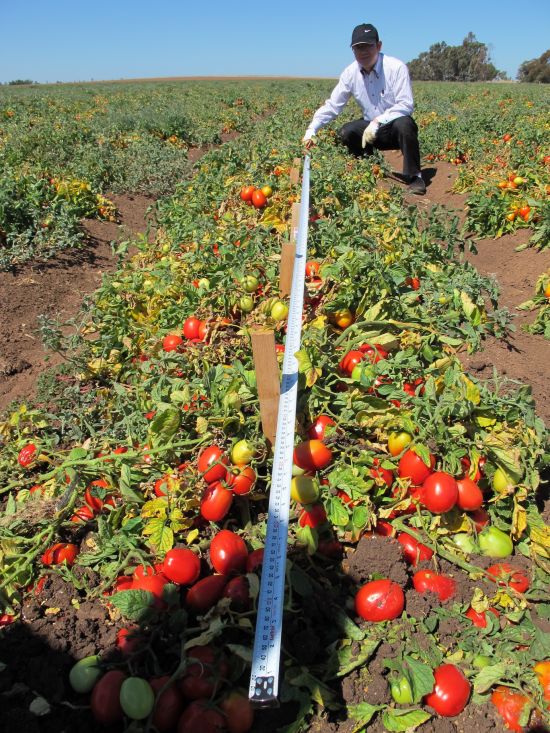Dr Pauline Mele (Agriculture Victoria) and Masters student, Michelle Quach (Melbourne University), discuss the impacts of subsurface drip irrigation (SDI), used to increase water efficiency, on soil microbial communities in field grown tomato crops. This is frontier science that uses DNA technology to determine microbial communities impacting yield variability. This work seeks to address the problem of field tomato yield variability.
Soil microbial communities mediate many processes that impact on plant production systems such as disease expression, plant nutrient availability, pesticide decomposition, soil structure and water quality.
Soil microbial communities influence many processes that impact on plant production such as disease expression, plant nutrient availability, pesticide decomposition, soil structure and water quality. Previous studies have reported changes in several key soil physio-chemical properties, and microbial communities under SDI, leading to the conclusion that these changes may impact the vigour of nearby tomato roots, causing variability in yield. This project tests this hypothesis and considers the implications of these changes on tomato crop vigour after successive plantings.
In the project the researchers compared soils and microbial communities where the crops had been under SDI for one year (the ‘newer’ field) and under five years (the ‘older’ field). They found that:

- Microbial diversity was affected by soil chemistry such as pH and the cation exchange capacity (CEC) of the soil.
- The newer field had higher changes in soil pH levels and other soil chemistry, more variable microbial communities and more variable tomato crop yield than the older field.
- In the older field the pH, other soil chemical factors, microbial populations and tomato yield were more stable.
- Where the pH was stable a range of other soil factors including; sodium, potassium and soil moisture were found to influence microbial communities.
This research is new and innovative, and more research is needed on microbial communities. Future research using this DNA technology could enhance understanding of;
- The biological systems in soil that influence yield,
- How bacterial community patterns are influenced by their environment,
- The significance of bacterial community patterns, and management of these communities to improve plant performance systems
Video: Dr Pauline Mele (Agriculture Victoria) and Masters student, Michelle Quach (Melbourne University) discuss the project findings and opportunities of further research.


This project was funded by the Innovation Seed Fund - for horticulture Development, a joint initiative between the University of Melbourne and Agriculture Victoria, pursuing innovative and high impact research projects that leverage the strengths of the two partners.